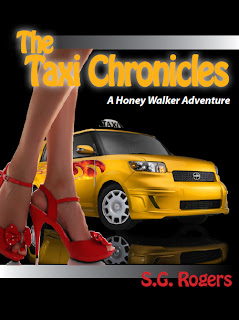With
the passing of another National Novel Writing Month, congratulations are surely
in order for those dogged souls who made the time, space and energy to churn out
a new book in 30 days. There’s nothing better than that feeling of
accomplishment and kudos to you all.
But
finishing a book also carries with it a certain sense of loss. The ideas and
characters that have occupied your brain for what seems like forever, the plot
turns and twists that have kept you up nights; the voices in your head that
intruded on your other activities in patches of dialogue and random inspiration
are, for the most part, resolved. And that resolution leaves a curious sort of
hole in the writer’s psyche.
If
it’s true that it’s best to write while you’re hot and those creative juices are
flowing, it’s also true that when you’ve finished a novel, the absolute best
thing you can do for yourself and the book is to just let it cool for awhile.
That sounds easier than it is, I know, but I’d recommend a minimum of two weeks
before you so much as look at it again. Go out to lunch, do the laundry, spend
time with your kids---take up knitting, whatever you wish, but DON’T leap right
back in and think you’ll be able to edit or make revisions with any sort of
objectivity at all. It’s always tempting to try and sustain the somewhat altered
state of consciousness that goes with creating anything—it’s a sort of “high”
that most of us are loathe to give up. When you’re writing you are indeed a
Master of your Universe; when the book is done, you have to come back down to
earth.
Despite
the fact that today’s emphasis tends to be all about turning out as much
product as fast as possible, and that ebooks and self-publishing provide for
more or less instant gratification when it comes to getting your work before the
public eye, it’s not always such a great idea.
Why?
Because the creative process is more complex than we’d like to believe, that’s
why. It’s not something we can control as readily as we want to. If you consider
the enormous amount of energy that goes into writing a novel, then you have to
appreciate that you need time to renew your own energy before you can dive back
and tackle technical aspects like editing. Fresh from your creative high, you
won’t have the distance to do that effectively; your mind will supply words that
aren’t there, automatically correct typos you can’t see, and fix plot points
that you know so well, you may assume they’re obvious to everyone when they’re
not.
In
short, that creative state sometimes makes us feel more brilliant that we
actually are, and when you don’t take necessary some time and distance from your
work, that realization can be awfully hard on the old Ego. It’s probably the
same reason Margaret Mitchell burned her first novel to ashes and Hemingway
drank like a fish.
Put
more facetiously, I had an author friend once say that finishing a novel was a
lot like flushing the toilet. “You can jiggle the handle all you want, but you
won’t be able to flush it again if you don’t give it time to fill back
up.”
A
bad analogy, I know… Yet just as it makes sense to forge ahead and finish your
book, it also makes sense to remove yourself a bit once the book is done, if
only to give the well of your creativity time to renew itself. Don’t be too
impatient; the slower rhythms of traditional publishing can offer a lesson here.
In the bad old days, you had to wait for an editor and then for a copyeditor and
then for a proofreader and then for galleys. It could take months. But at each
stage of that process, an author could find something new—changes he wanted to
make—a better word than one he’d used before; a detail that shouldn’t be left
out. Each time, it was possible to see something you hadn’t seen before, and
each time the book got better.
So
my best advice to all of you with a brand-spanking new novel under your belt is,
take your time. Give it to an editor, or run it by your Beta readers with strict
instructions for them to not tell you a thing for a couple of weeks. Failing
that, unplug your computer and run around the block; bake Christmas cookies, or
call an old friend but DO take some distance.
Let
it go.
Let
it cool. Before you know it, you’ll be able to see your work with new eyes,
those of a reader, not a writer.








